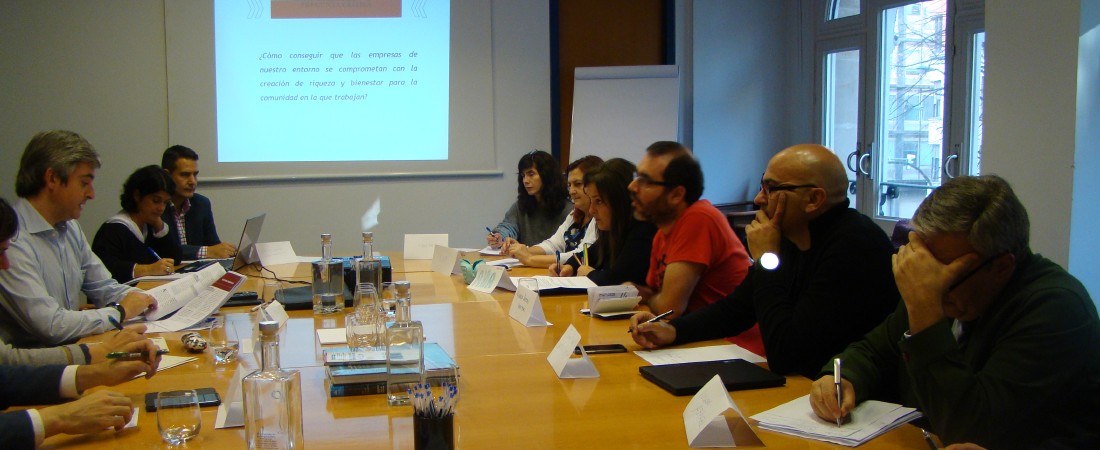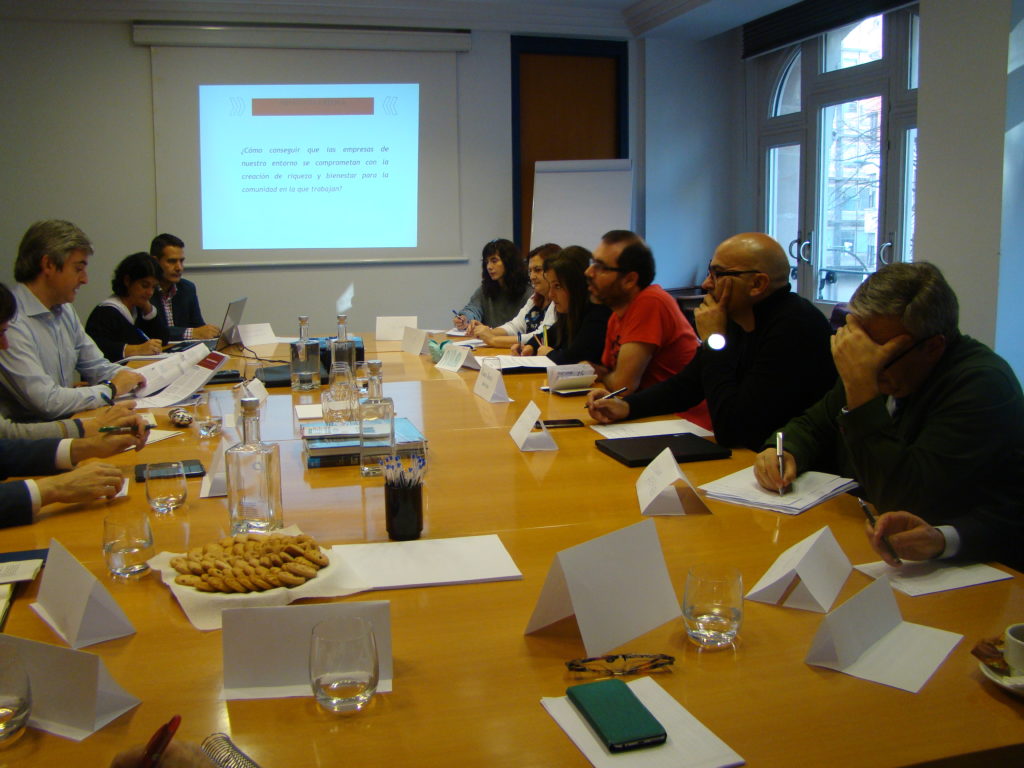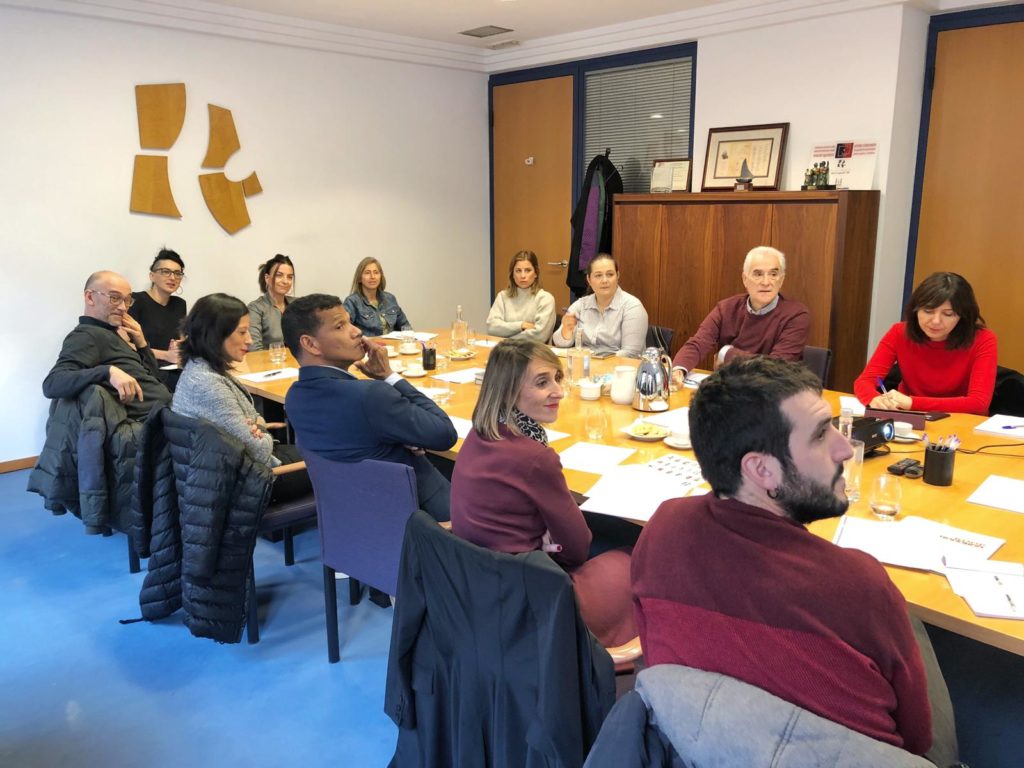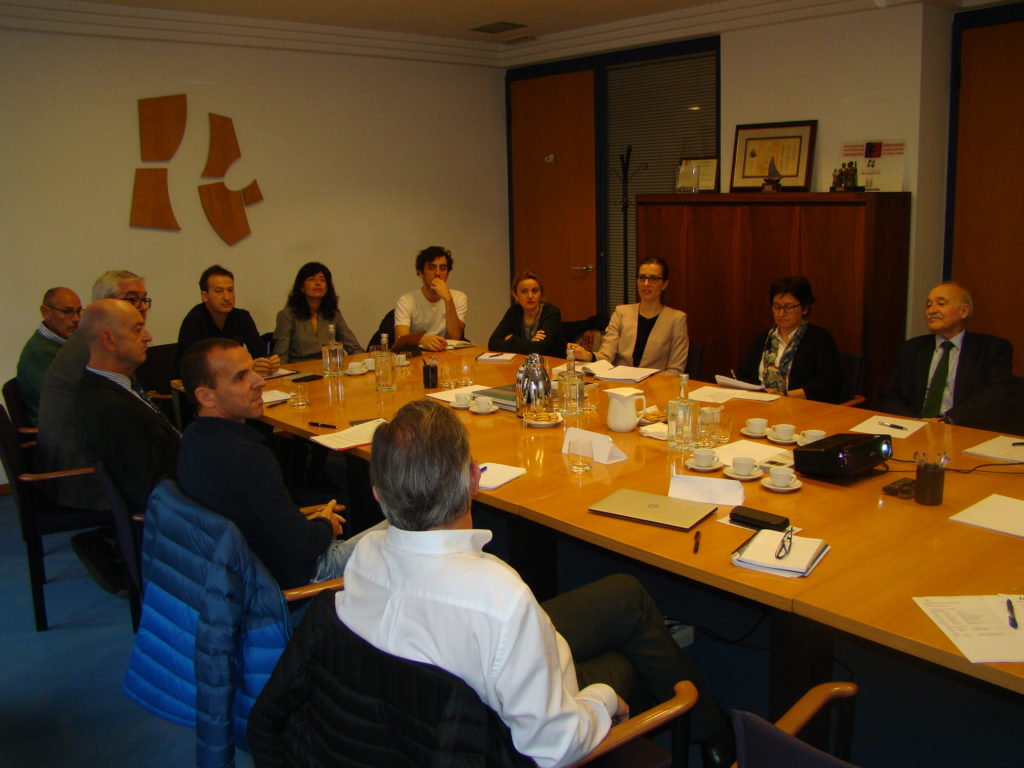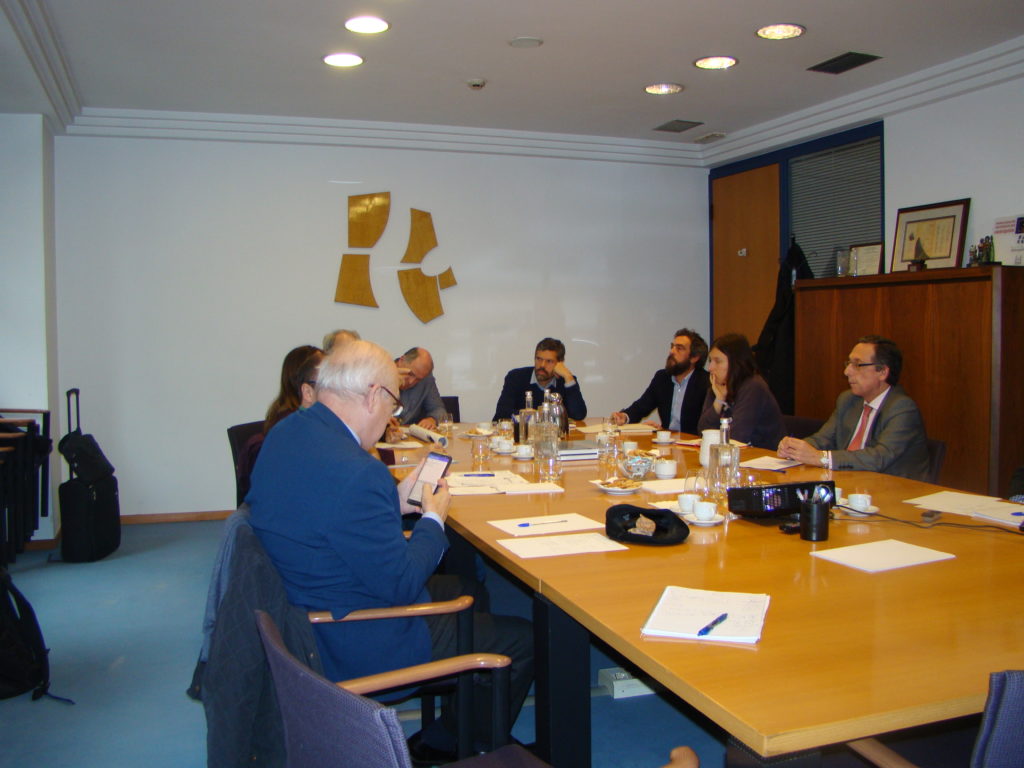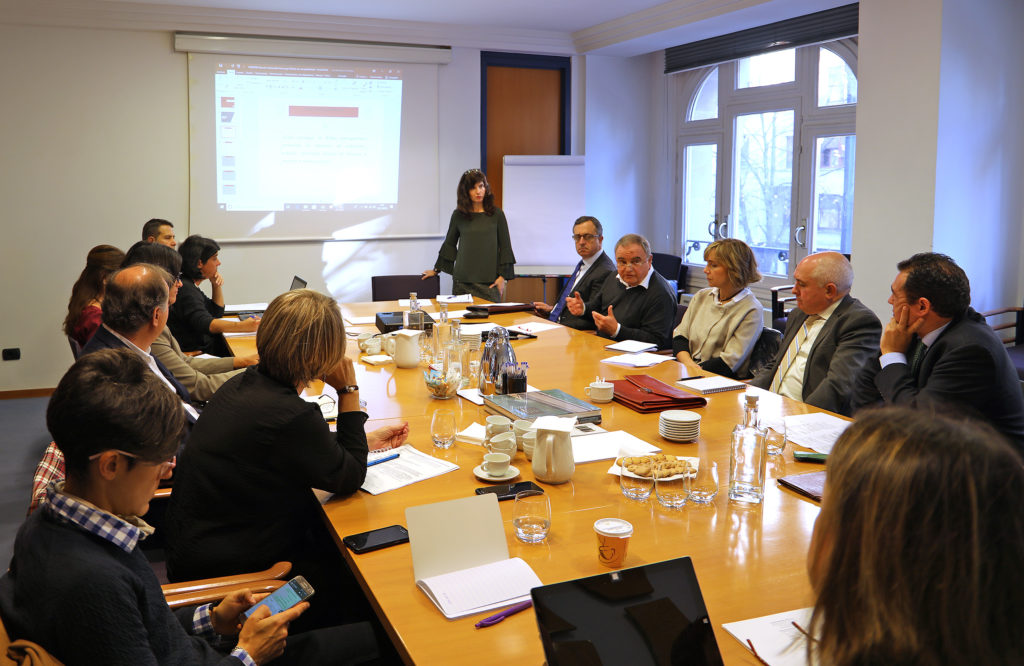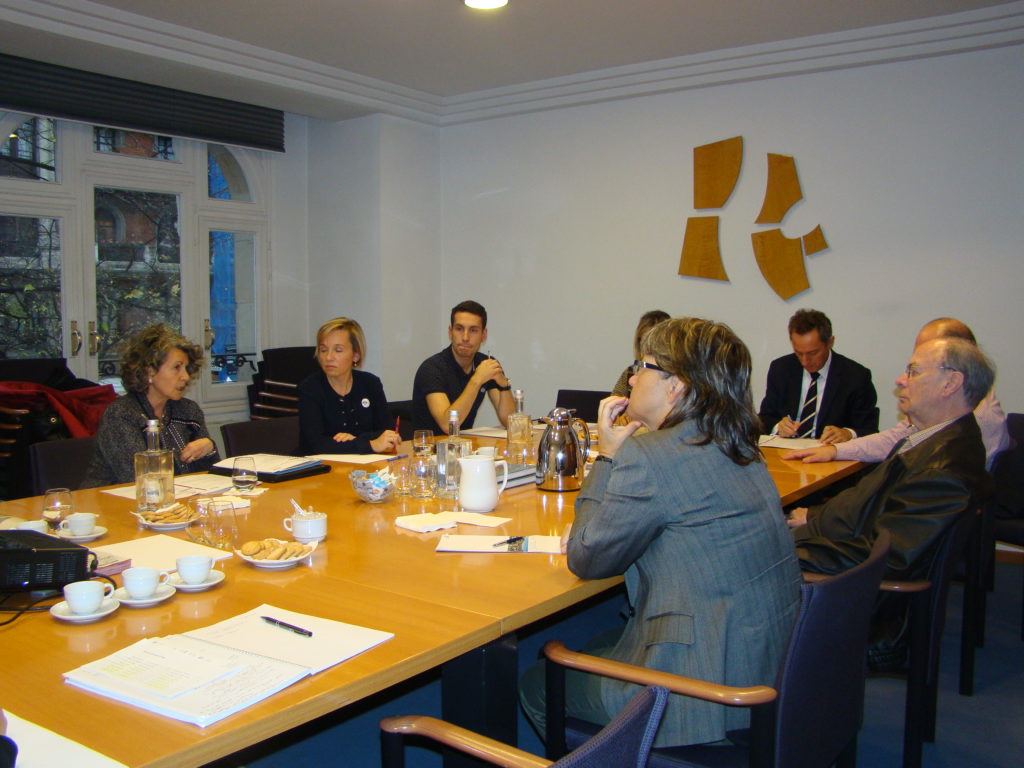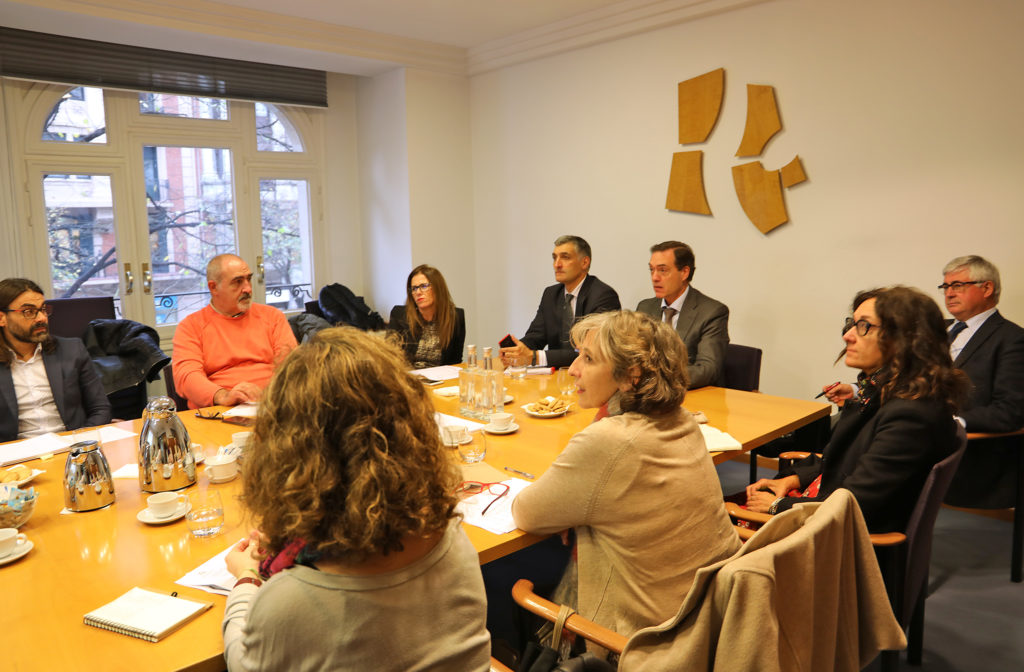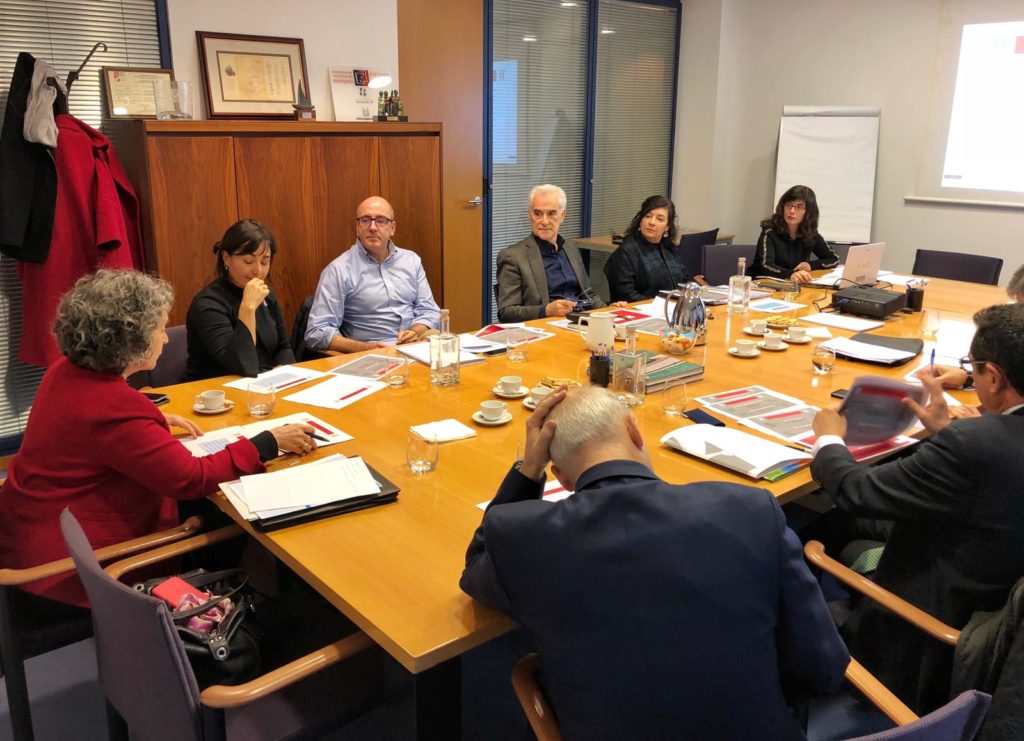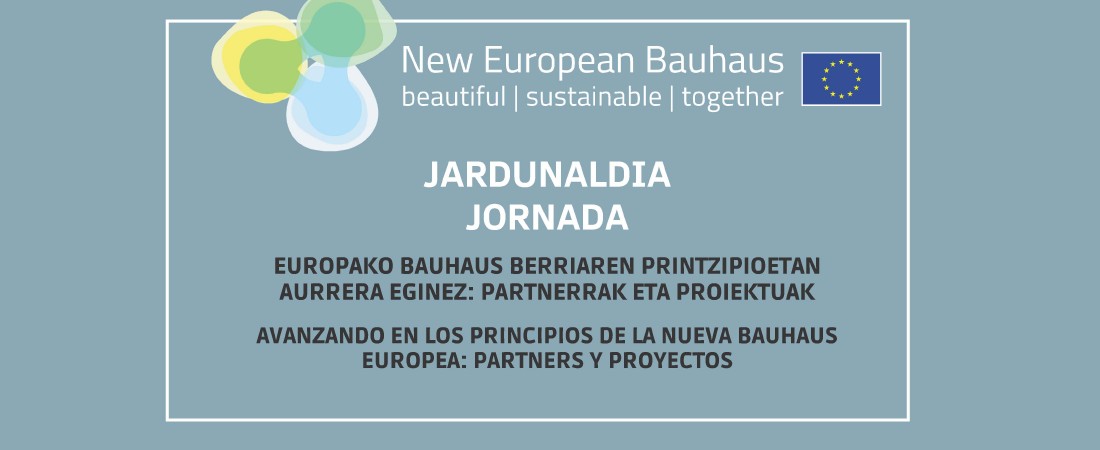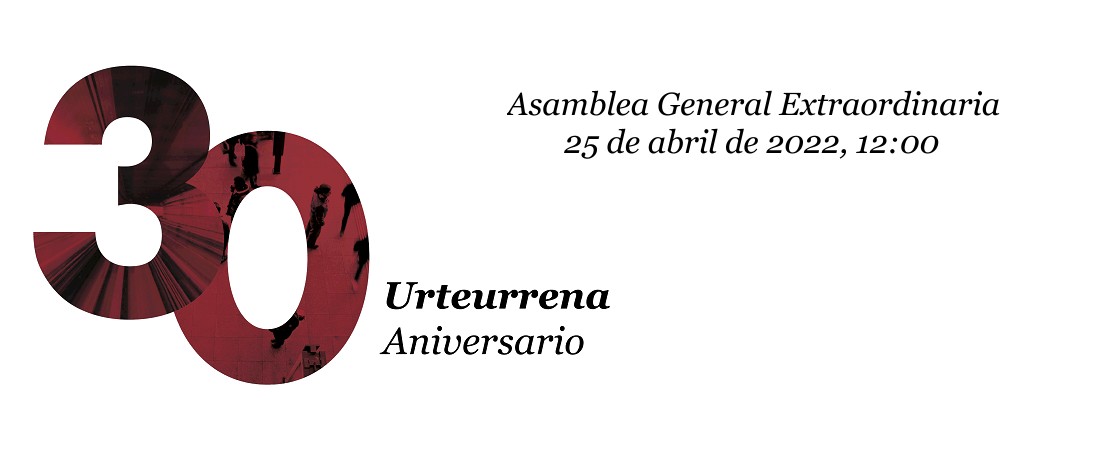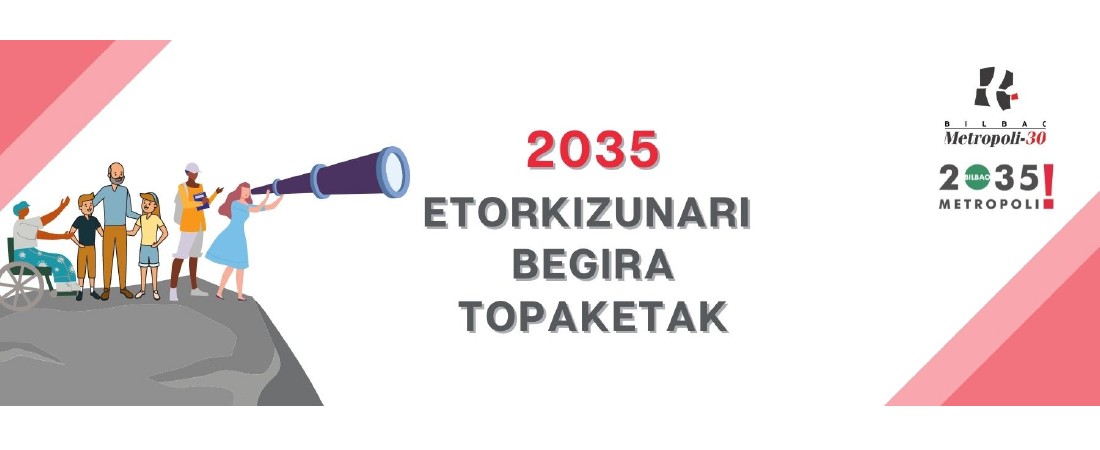Metropolitan Bilbao 2035. Second round of the Stage II
Between November and December 2018, the second round of meetings of the working groups, taldeak, took place within the Stage II of the Strategic Reflection and Scenario Analysis as part of the project “Metropolitan Bilbao 2035. Looking to the future”, following on from the first one held on 30 October. The eight groups, or taldeak, worked on the different topics linked to the key variables identified within the time horizon of Metropolitan Bilbao 2035.
This round of meetings enabled each talde to agree upon the core question to be addressed, as well as identify the critical issues that may affect it over the coming years, while narrowing the focus onto the two basic pillars that inform the matrix of scenarios.
There now follows a summary of the different topics each group worked on:
- Co-creation of wellbeing, leaded by Alejandro Ormazabal of Velatia
- Participative business management
- Eco-friendly corporate responsibility
- Employment as an instrument of social inclusion
- Respect for the environment
- Sustainable Future, leaded by Francisco Olarreaga of Iberdrola:
- Clean energy self-sufficiency
- Waste management
- Efficient combined transport
- Rational urban development and building
- The environment
- Interconnected and smart metropolitan landscape, leaded by Itziar Epalza of the Basque Technological Park Network:
- Mass sensorization
- Large-scale processing and analysis
- Data-based knowledge generation
- Safety, security, health, mobility, environment, social connection, employment…
- New job-creating economies, leaded by Eukene Bengoa of Inguralde:
- Transition to a Circular Economy. Barriers and opportunities
- The Circular Economy model as a source of employment
- How to integrate the circular model in business strategy
- Acceleration of business growth and enhanced competitiveness
- River and networks, leaded by José Tesán of Caminos Euskadi
- Metropolitan concept of the Ría (Bilbao’s river estuary)
- Ambitious proposals with an economic impact
- Model for the environmental and urban recovery of water areas
- Shared governance in metropolitan areas, leaded by Izaskun Artetxe of the Biscay Provincial Government:
- Reinforcing the metropolitan concept: an area with high internal cohesion
- The metropolitan area as an international benchmark
- Development of strong partnership ties with the world’s most vibrant metropolitan areas
- Komunitatea, leaded by Gorka Martínez of the BBK Foundation:
- Social cohesion
- Gender equality
- Migration
- Intergenerational dialogue
- Care as a social responsibility
- Nortasuna eta Hiria, leaded by Txabi Anuzita of UNESCO Etxea:
- Popular engagement in building the city
- Sense of belonging
- Soft planning (age, gender…)
- Vitality, creativity, ambition…

